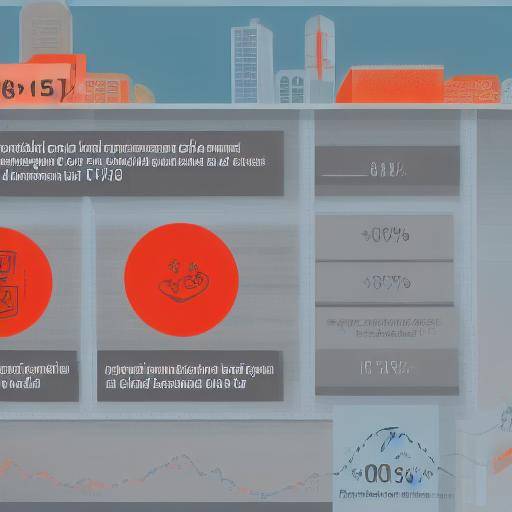
Introduction
In an increasingly aware world of the importance of social responsibility and environmental impact, ethical and sustainable investments in the stock market have gained great relevance. Investors are now looking for opportunities that not only generate financial returns, but also contribute to social welfare and environmental care. In this article, we will explore in detail the concepts of responsibility, impact and choice in the context of ethical and sustainable investments in the stock exchange, providing valuable information, practical advice and comprehensive analysis of this growing trend.
History and Background
Ethical and sustainable investments have their roots in social and environmental movements of the twentieth century that advocated a more responsible and sustainable approach in the business sphere. In the 1960s, the first ethical investment funds emerged, marking the beginning of a trend that has expanded globally.
Over the decades, the demand for responsible investment options has been growing steadily, leading to the development of investment strategies that not only consider financial returns, but also social and environmental impacts. This evolution has led to the integration of environmental, social and corporate governance criteria (ESG) in investment decision-making, laying the foundations for current ethical and sustainable investments in the stock exchange.
Analysis in Deep
Ethical and sustainable investments offer a number of benefits for both investors and society at large. These investments not only seek to generate financial returns, but also commit themselves to promoting responsible and sustainable business practices, which in turn can have a positive impact on society and the environment.
However, there are significant challenges associated with ethical and sustainable investments, such as the need to accurately assess the social and environmental impact of companies, as well as the possible limitation of investment options compared to more traditional approaches. Despite this, the trend towards the integration of ethical and sustainable considerations in investment decisions continues to increase, reflecting a growing awareness and commitment to the social and environmental impact of financial activities.
Comprehensive review
Ethical and sustainable investments have demonstrated their applicability in a wide range of financial sectors and markets, and there are many clear examples of companies that have adopted responsible and sustainable practices with positive results both financially and in terms of social and environmental impact.
The choice of ethical and sustainable investments is fundamental to the development of a more equitable and sustainable financial system, and as more investors take this approach, it is expected that companies and financial markets will respond by adapting their practices and standards to align themselves with these demands.
Comparative analysis
Responsibility, impact and choice are fundamental concepts in the field of ethical and sustainable investments. While responsibility implies a conscious consideration of the impacts of investment decisions, the impact refers to the real effects that these decisions have on society and the environment. For its part, the choice focuses on the ability of investors to select opportunities that reflect their ethical and sustainable values and objectives.
One of the key challenges lies in finding the right balance between obtaining financial returns and generating positive impacts. Through careful evaluation of investment options, investors can maximize the positive impact of their decisions and encourage significant change in the business and financial sphere.
Practical Tips and Accessible Recommendations
In considering ethical and sustainable investment options, it is important for investors to undertake thorough research on the companies and funds they want to invest in. This implies careful analysis of ESG reports, evaluating the commitment of companies to sustainable and responsible practices, and seeking expert advice on ethical investments. Investors can also opt for mutual or ETF funds that focus specifically on ethical and sustainable investments, which gives them the opportunity to diversify their portfolio while maintaining a responsible approach to their investments.
Industry ideas and Expert Reviews
Ethical and sustainable investment experts agree that this trend represents the future of investment, and that companies and financial markets must adapt to meet the growing demands for transparency and accountability. Government regulations and industry initiatives are also contributing to the momentum of ethical and sustainable investments, suggesting a significant change in how investments and their impacts are conceived in the current and future world.
Cases of Study and Applications in Real Life
Case studies of companies that have adopted ethical and sustainable investment strategies provide valuable insights on the benefits and challenges associated with this approach. From companies that have achieved solid financial returns while generating positive impacts on their communities and the environment, to those who have faced difficulties in maintaining the balance between profitability and responsibility, these experiences provide important lessons for investors and companies alike.
Future Trends and Predictions
As awareness of the social and environmental impacts of financial activities continues to grow, ethical and sustainable investments are expected to become the mainstream in the world of finance. Increased emphasis is expected on impact measurement and disclosure, as well as an increase in the diversity of ethical and sustainable investment options to meet the growing demand of investors for options that reflect their values and commitments.
Conclusion
In short, ethical and sustainable investments in the stock exchange represent a powerful opportunity for investors to align their personal values with their financial decisions. By adopting a responsible approach and considering the social and environmental impact of their investments, investors can not only obtain solid financial returns, but also contribute to the well-being of society and the environment.
Frequently asked questions
How can I identify ethical and sustainable investment options?
To identify ethical and sustainable investment options, it is crucial to consult ESG reports, evaluate corporate governance transparency and practices, and seek expert advice on ethical investments. In addition, there are mutual funds and ETF specialized in such investments that can be considered.
What is the impact of ethical and sustainable investment on the environment?
Ethical and sustainable investments can have a positive impact on the environment by channeling capital to businesses committed to sustainable practices, renewable energy and reducing polluting emissions.
Do ethical and sustainable investments sacrifice financial returns?
While some ethical and sustainable investment options may not generate yields as high as conventional investments, there is growing evidence that suggests that these investments can be profitable in the long term, in addition to generating positive social and environmental impacts.
What role do ethical investment funds play in sustainable finance?
Ethical investment funds play a crucial role in providing investors with the opportunity to channel their capital to companies that adopt responsible and sustainable practices, thus contributing to the promotion of a more equitable and sustainable financial system.
What is the role of individual investors in ethical and sustainable investments?
Individual investors play a significant role in demanding transparency and accountability in business practices, as well as in making informed decisions about their investments in the light of ethical and sustainable considerations.
How can we measure the social impact of ethical and sustainable investments?
The social impact of ethical and sustainable investments can be measured through key indicators such as sustainable employment, gender equity in the enterprise, attention to disadvantaged communities, among others. Companies that provide transparent reports on these aspects allow investors to assess their social impact more effectively.
In conclusion, ethical and sustainable investments in the stock market are a tangible manifestation of the growing commitment to social responsibility and environmental impact. As this approach continues to gain momentum, business and financial markets are expected to evolve to meet the growing demands of investors seeking to align their values with their investment decisions. While there are challenges associated with these investments, the potential benefits for society, the environment and long-term financial returns make this trend worthy of serious consideration by today's investors.











































